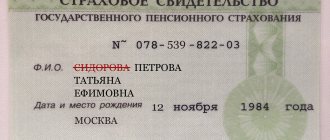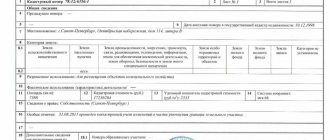Notaries will provide services in a new way
Air, after the cessation of international transportation, fired the employee who was involved in their maintenance, with reference to clause 7, part 1, art. 83 Labor Code of the Russian Federation. The norm provides for the occurrence of emergency circumstances that prevent the continuation of labor relations.
The employee appealed the dismissal.
Law No. 480-FZ dated December 27, 2019 made numerous adjustments to the legislation on notaries. The main innovations will take effect from the end of 2021.
The adopted law introduced the possibility of checking data on a notarial document. Relevant information can be obtained through the notary information system using special markings on the document. At the same time, the procedure for interaction of the notary's EIS with other information systems has been defined.
Among the innovations, there is the opportunity to apply for the services of a notary without a passport. If the applicant does not have the specified document, notaries are allowed to establish identity through the personal data information system. The list of actions that a notary can perform remotely is regulated:
- certification of the correctness of the translation;
- sending documents to individuals and legal entities;
- acceptance of funds and securities for deposit;
- deposit of movable things, non-cash money or uncertificated securities;
- collection of money and property of the debtor;
- writ of execution regarding the storage of electronic documents;
- provision of an extract from the register of notifications of pledge of movable property.
Also, according to the new rules, several notaries will be able to certify a transaction if it is concluded by more than two persons located in different places. Information about opening an inheritance case can also be obtained remotely.
Federal Law of December 27, 2019 No. 480-FZ “On Amendments to the Fundamentals of the Legislation of the Russian Federation on Notaries and Certain Legislative Acts of the Russian Federation”
What is the executive inscription used for?
The notary in Russia is empowered to issue writs of execution, with the help of which creditors can get their money back without involving the judiciary.
The main nuances of a notarial inscription:
- the right to affix an executive inscription is granted to absolutely all persons who have the status of a notary in Russia;
- it is possible to collect a debt through an inscription only in situations in which no dispute has arisen between the parties (a full list of situations can be found in the law on notaries);
- The law obliges bailiffs to carry out the orders of notaries. According to the law, an agreement with a mark affixed by a notary is equivalent in legal force to a writ of execution;
- collection in this way is legal; in order to avoid fraudulent schemes, information about the execution of a notarial inscription is entered into a special register. The register is uniform throughout Russia and belongs to the federal level.
Important! It is up to the creditor to decide whether to use this method of debt repayment or not. In this case, this possibility must be fixed in the agreement between the parties to the transaction. The only case where this method of collection may not be prescribed is in contracts that were drawn up and certified through a notary office.
Does a notary have the right to impose fees for legal services?
A resident of Yekaterinburg turned to a notary to certify a completed marriage contract. But the notary agreed to certify the contract only if he was additionally paid for the services of drawing up the marriage contract. Since the client did not want to pay, the notary refused the notarial act.
The woman went to court, but she was also denied. Then she filed a complaint with the Constitutional Court against the provisions of Art. 22 of the “Fundamentals of the legislation of the Russian Federation on notaries”, according to which “in connection with the performance of a notarial act, a notary engaged in private practice is paid for legal and technical services.”
The Constitutional Court of the Russian Federation refused to consider the complaint. As the Constitutional Court noted, establishing a list of legal and technical services provided by a notary does not contradict the law. Nevertheless, the Constitutional Court of the Russian Federation named the following duties of a notary in such a situation:
- the notary must explain the features of the notarial act, which will require additional costs;
- announce the amount of the fee for this action, including the amount of the notary fee and the cost of legal and technical services;
- provide information about existing benefits when applying for notarial acts.
The interested party, in turn, has the right to disagree with the need to pay the notary the cost of legal and technical services, based on the essence of a particular notarial action. The refusal of a notary to perform a notarial act in such cases can be appealed in court. The judicial authorities must check whether the provision of additional legal and technical services was actually required in a particular situation or whether the notary simply imposed them.
Determination of the Constitutional Court of the Russian Federation dated 04/09/2020 No. 815-O
When is the best time to invest in a notary?
If you are concluding a deal with real money, the seller or buyer seems “cloudy” to you, or you are afraid of being deceived, call a notary. Even if a realtor is involved in the transaction, from the point of view of the law, his vote is worth nothing. The notary guarantees the state the purity of the transaction. Moreover, everything will happen in the notary’s office, on safe neutral territory.
If you buy an apartment with a mortgage, the bank will ensure the security of the transaction. In this case, it is not necessary to conclude a notarial agreement. You can ask the bank to prepare all the papers. This will cost less than the services of a notary.
A notary transaction costs from 10 to 20 thousand rubles. Usually this amount is divided between the seller and the buyer. However, the buyer can pay for the notary’s services himself, since he is more interested in him.
Ask your realtor to find a reliable, trusted professional you can trust. It will save your nerves and seriously speed up the transaction.
The Ministry of Finance refused to rename the notary state fee
The financial department has considered a proposal from one of the deputies to rename the “state fee” charged by notaries into “notary fee”. According to the deputy, the main argument for the renaming is that the funds received by a private notary under the guise of a state fee do not go to the state budget, but are the personal income of the notary.
As stated in Article 22 of the “Fundamentals of Notaries”, for performing actions, a notary engaged in private practice charges a notarial fee in an amount corresponding to the amount of the state duty provided for performing similar actions in a state notary office. This wording means that the notary fee of a private notary is not a state duty.
The state duty from state notaries is credited at a rate of 100 percent to the budgets of the constituent entities of the Russian Federation and to the budgets of settlements.
Moreover, according to Article 37 of the “Fundamentals of Notaries”, if there is no notary in the settlement, then an authorized local government official has the right to perform notarial acts. Based on this, officials came to the conclusion that there was no problem here and they would not rename the “state fee” to “notary fee”.
Letter of the Ministry of Finance of the Russian Federation dated February 19, 2020 No. 03-05-04-03/11833
The apartment is sold or transferred under a rental agreement
A rental agreement is an agreement in which the owner gives away a home for a small lump sum, monthly payments, a lifetime dependency, or simply care for himself. Older people usually take this step. They sign an agreement that the apartment will go to whoever pays them money or takes care of them after their death. Previously, you won’t be able to take your home; a burden will be placed on it.
The rent agreement is registered with a notary. Moreover, the owner of the apartment must appear at the notary office himself to confirm that he is voluntarily ready to sign the papers.
In which court to challenge a notary’s refusal to certify LLC shares?
The citizen filed a claim with the Arbitration Court of the Rostov Region against the notary of the Donetsk Notary District of the Rostov Region to invalidate the refusal to perform a notarial act - certifying an agreement for the donation of a share in the amount of 100 percent in the authorized capital of a limited liability company and the obligation of the notary to certify this agreement. However, the judge considered that the plaintiff had come to the “wrong address.”
According to the court, the subject of the stated claim is a requirement to recognize as illegal the refusal to perform a notarial act - certification of a donation agreement for a share in the amount of 100 percent in the authorized capital of LLC "Actual Legal Adviser", and not a requirement to recognize the right to a share in the authorized capital. The plaintiff’s demands, in essence, boil down to disagreement with the notary’s refusal to perform certain notarial actions in connection with his application.
As stated in Article 49 of the “Fundamentals of the Legislation of the Russian Federation on Notaries,” an interested person who considers an action performed by a notary or a refusal to perform a notarial action to be incorrect has the right to file a complaint about this with the district court at the location of the state notary’s office.
Having established that the dispute does not fall into the category of economic disputes or disputes arising in the field of business activity, the arbitration court applied the provisions of Art. 49 of the “Fundamentals of Legislation on Notaries” and refused to accept the statement of claim for proceedings due to the lack of jurisdiction of the dispute to the arbitration court.
The plaintiff filed complaints to higher arbitration courts. But the courts of appeal and cassation also rejected him. Finally the matter reached the Supreme Court, which carefully checked the decisions of all higher courts and did not find any errors in their conclusions. The Supreme Court of the Russian Federation refused to consider the complaint, since the lower courts correctly applied the provisions of Art. 225.1 Arbitration Procedure Code of the Russian Federation and Art. 33, 49 “Fundamentals of the legislation of the Russian Federation on notaries.”
Ruling of the Supreme Court of the Russian Federation dated November 15, 2019 No. 308-ES19-18570
Features of the notary profession
Based on the wide range of services that a notary can provide, his activities have a number of features, the main of which is to have deep legal knowledge and the need to constantly improve.
By the way, a notary is prohibited from conducting any business activity in parallel with notarial work, with the exception of scientific and teaching activities.
This is interesting: the professional ethics of a notary prohibits serving his relatives, as this may raise suspicions of a desire to receive personal gain.
Even the most attentive person sooner or later makes mistakes, and in notarial activity this is unacceptable. One wrong letter can cost your career and cause significant property damage. There is such a thing as professional liability insurance, thanks to which the insurance company can protect the notary. In this case, we are talking about the financial costs of compensating for damage caused to the client due to an accidental mistake of a specialist.
A notary is not a psychiatrist
The Muscovite filed a claim with the arbitration court against his grandson, the Federal Tax Service and the notary. According to the plaintiff, the purchase and sale agreement for a share in the amount of 100 percent of the authorized capital of the LLC, concluded between the plaintiff and the defendant grandson on 02/02/2018, is invalid on the basis of clause 1 of Art. 177 of the Civil Code of the Russian Federation, since the plaintiff had no intentions to alienate the property, which was known to the defendant, who is a close relative of the plaintiff.
The plaintiff's mental disorder prevented a comprehensive and holistic understanding of the content and legal consequences of transactions, including transactions regarding the disposal of property. Therefore, the plaintiff asked to declare the agreement invalid, to apply the consequences of the invalidity of the transaction in the form of returning 100 percent of the share in the authorized capital of the company to the plaintiff, and to oblige the Federal Tax Service Inspectorate No. 18 for Moscow to make a corresponding entry in the Unified State Register of Legal Entities.
The notary submitted a response to the court in which he objected to the satisfaction of the claim, indicating that the agreement was certified in compliance with the requirements of the current legislation, the identity and legal capacity of the signatories were verified in accordance with Art. 42, 43 “Fundamentals of the legislation of the Russian Federation on notaries”, a corresponding conversation was held, the content of the transaction, its meaning and significance was explained, the content of the agreement was read aloud. The plaintiff’s actions were logical, consistent, the plaintiff explained the motives for the transaction, behavior and judgment were adequate, there were no grounds for doubt about legal capacity, at the time of certification of the transaction the plaintiff was able to understand the nature of her actions and manage them, challenging the transaction was aimed at abuse of law.
But at the court hearing it turned out that, as part of the criminal proceedings, a psychiatric clinical examination conducted a forensic psychological and psychiatric examination of the plaintiff, according to the conclusions of which the plaintiff, at the time of the contested transaction, was in a state that did not allow her to understand the meaning of her actions and direct them.
The court declared the agreement invalid. But the higher courts did not agree with this conclusion and rejected the claim. They noted that the notary, when certifying transactions, assessed the mental state of the plaintiff. Moreover, when certifying the contract, information about the presence (absence) of a judicial act declaring the applicant incompetent or partially capable was requested by a notary and received from the Unified State Register of Legal Entities; information about declaring the client incompetent or partially capable was not received.
The case reached the Supreme Court, which noted that if the notary had no doubts regarding the mental state of the client, this does not mean that the latter is mentally healthy, because the notary does not have a higher education in the field of psychiatry. The Supreme Court will scrutinize this case shortly.
Ruling of the Supreme Court of the Russian Federation dated July 10, 2020 No. 305-ES20-5407
Notary experience requirements
Before you think about opening a notary office, you need to obtain not only the appropriate education, but also experience in the legal field. The specialist must meet the following requirements:
- completed higher education at a law school;
- work experience of at least two years in a law firm after graduating from a higher educational institution;
- internship for at least a year with an active notary. You can choose a private or public institution for your internship;
- a person aged from 25 to 75 years can become a notary;
- a document confirming that the qualification exam was passed successfully. If the notary fails to pass the test - both in practice and in theory - the next retake will be scheduled for next year;
- have in hand a permitting document that is issued by the justice authorities or the notary chamber.
The notary violated the rights of creditors
In 2011, a loan agreement was concluded between individuals, under which Broker NN LLC was the guarantor. When carrying out procedures within the framework of the bankruptcy case of this organization, the bankruptcy trustee discovered that a notary of Nizhny Novgorod had made a writ of execution against the debtor for 11 million rubles, which caused damage to the rights of creditors. The inscription was made on a copy of the debt repayment agreement. The manager went to court to challenge the notarial act.
The court concluded that the text of the debt repayment agreement does not make it possible to unambiguously establish the amount of debt that was agreed upon by the parties as final, including principal and interest for the entire previous period.
Since, according to Article 89 of the “Fundamentals of the Legislation of the Russian Federation on Notaries,” the notary’s writ of execution is made on a copy of the document establishing the debt, the agreement dated December 30, 2016 on repayment of the debt does not apply to such documents. The court also noted that the inscription on the copy of the agreement is actually an executive document, but only if there is a valid loan agreement. The borrower and his guarantor have a double obligation to be responsible for the loan received.
The notary filed appeals and cassation complaints to higher courts. But the judicial authorities only agreed with the original decision and added that the loan agreement, which is referred to in the agreement and in pursuance of which this agreement was concluded, was not terminated or terminated when the agreement was concluded.
As Article 379.7 of the Code of Civil Procedure of the Russian Federation states, the grounds for canceling or changing court decisions by a cassation court of general jurisdiction are the discrepancy between the court’s conclusions contained in the appealed court decision and the factual circumstances of the case established by the courts of first and appellate instances, violation or incorrect application of substantive or procedural law. The court of first instance did not commit such violations.
Determination of the First Cassation Court of General Jurisdiction dated May 27, 2020 No. 88-14457/2020
The court did not deprive a notary of his status for minor violations
The Kirov Regional Notary Chamber filed a lawsuit against the notary for deprivation of the right to engage in notarial activities, seizure of the notarial archive and official seal. In support of the claims, the plaintiff indicated that on September 27, 2017, an unscheduled inspection of the professional activities of a notary was carried out regarding the collection of notarial tariffs and fees for legal and technical services.
During the inspection, the commission identified a number of violations; based on the results of the inspection, it was recommended to recognize the work of the notary in terms of collecting tariffs and fees for the provision of legal and technical services as unsatisfactory. The notary was reprimanded. The commission found the following violations in the work of the notary:
- violation of the requirements of Art. 349 of the Civil Code of the Russian Federation, establishing the procedure for foreclosure on mortgaged property. In one of the agreements certified by a notary, the essential condition on the procedure for foreclosure on mortgaged property belonging to a minor does not contain conditions on the presence of an order from the guardianship and trusteeship authority prohibiting the alienation of such property without the consent of the said authority;
- violation of the requirements of paragraph 6 of Art. 85 of the Tax Code of the Russian Federation, according to which notaries engaged in private practice are required to report the issuance of certificates of the right to inheritance to the tax authorities at their location or place of residence no later than five days from the date of the corresponding notarization. Information about the issued certificates of the right to inheritance in the inheritance case was not sent to the tax authority;
- violation of the requirements of Art. 35 of the RF IC – the purchase and sale agreement certified on 02/08/2018 does not contain the consent of the seller’s spouse. There is also no information confirming that the seller has no defects;
- violation of the requirements of Art. 16 of the “Fundamentals of Legislation on Notaries”, according to which a notary is obliged to provide assistance to individuals and legal entities in the exercise of their rights and protection of legitimate interests, explain to them their rights and obligations, warn them about the consequences of performed notarial actions so that legal ignorance cannot be used by them to the detriment
The notary filed a counterclaim to the Kirov Regional Notary Chamber to recognize the board’s decision as illegal and cancel it, in support of which she indicated that the alleged violations were obviously a far-fetched and subjective opinion of the inspectors about what wording should be used in notarial documents.
But the court rejected both the plaintiff and the defendant. In refusing to satisfy the initial claim, the court of first instance proceeded from the fact that the violations identified during the inspection were not so significant as to deprive the notary of his status. There were no complaints from citizens regarding the identified violations; the above actions of the notary were not challenged in court; evidence of the occurrence of serious, adverse consequences as a result of the violations was not presented. The judge also rejected the plaintiff's arguments that the notary falsified documents.
The court rejected the notary because the audit carried out in the defendant’s activities revealed a number of violations of both the current legislation when performing notarial acts and the rules of notarial office work. The procedure for bringing to disciplinary liability was followed, and therefore disciplinary action in the form of a reprimand is absolutely legal. Both the plaintiff and the defendant filed a complaint with the Moscow City Court, but it upheld the decision of the trial court.
Appeal ruling of the Moscow City Court dated February 26, 2020 No. 33-4468/2020
Services provided by a notary office
Notaries provide a wide range of services. Let us highlight those that are provided to clients one-time:
- Registration of donation and rent agreements;
- Conclusion of marriage contracts;
- Drawing up powers of attorney;
- Conducting cases related to inheritance;
- Drawing up wills;
- Certification of transactions;
- Drawing up purchase and sale agreements;
- Preparation of certified copies of documents;
- Consent for the child to leave.
Some notary offices provide corporate services to legal entities. In this case, the notary works individually with each company.
Is it possible to challenge a notary's refusal?
A resident of Moscow turned to a notary regarding the issue of inheritance. She explained that her mother had recently died, who left a will, certified on 02/19/1990 by the secretary of the executive committee of the Rodnikovsky village council and registered in the registry book. According to the said will, she is the heir to all property. The applicant's half-sister challenged the said will in court, but her claim was rejected. To confirm her right, the woman provided the original will and documents for the property and asked the notary to issue a certificate of the right to inheritance according to the law at the place where the inheritance was opened.
At her request, the notary opened an inheritance case, but she was refused to issue a certificate of the right to inheritance, since it was not possible to reliably determine the validity of the will. The indignant woman went to court to challenge the notary’s refusal, since the requirements for drawing up a will that were in force at that time were met, there was no information about the cancellation or change of the will, and the materials from the archive of notarial actions were stolen from the premises of the administration of the village of Rodniki in May 1998.
But the court of first instance rejected the claim. According to the judge, documents indisputably confirming the validity of the will were not presented to the notary. If there are insufficient documents confirming the validity of the will, issues of recognition of property rights in the order of inheritance under a will are resolved in court. The woman filed a complaint in a higher court.
The Moscow City Court noted that the decision of the Chertanovsky District Court of Moscow dated April 1, 2019, which entered into legal force, rejected the applicant’s sister’s claim to invalidate the will. This decision established that the testator, when drawing up a will, could account for and direct her actions, and also that the will was drawn up in the form established by the legislation in force at that time. The fact that the testator issued the disputed will is not disputed.
The Judicial Collegium of the Moscow City Court came to the conclusion that the notary had no grounds for refusing to perform a notarial act, and overturned the decision of the first instance. The judges made a new decision in the case to invalidate the decision to refuse to perform a notarial act and ordered the notary to issue the plaintiff a certificate of ownership of the inheritance under the will.
Appeal ruling of the Moscow City Court dated January 20, 2020 No. 33-2206/2020











